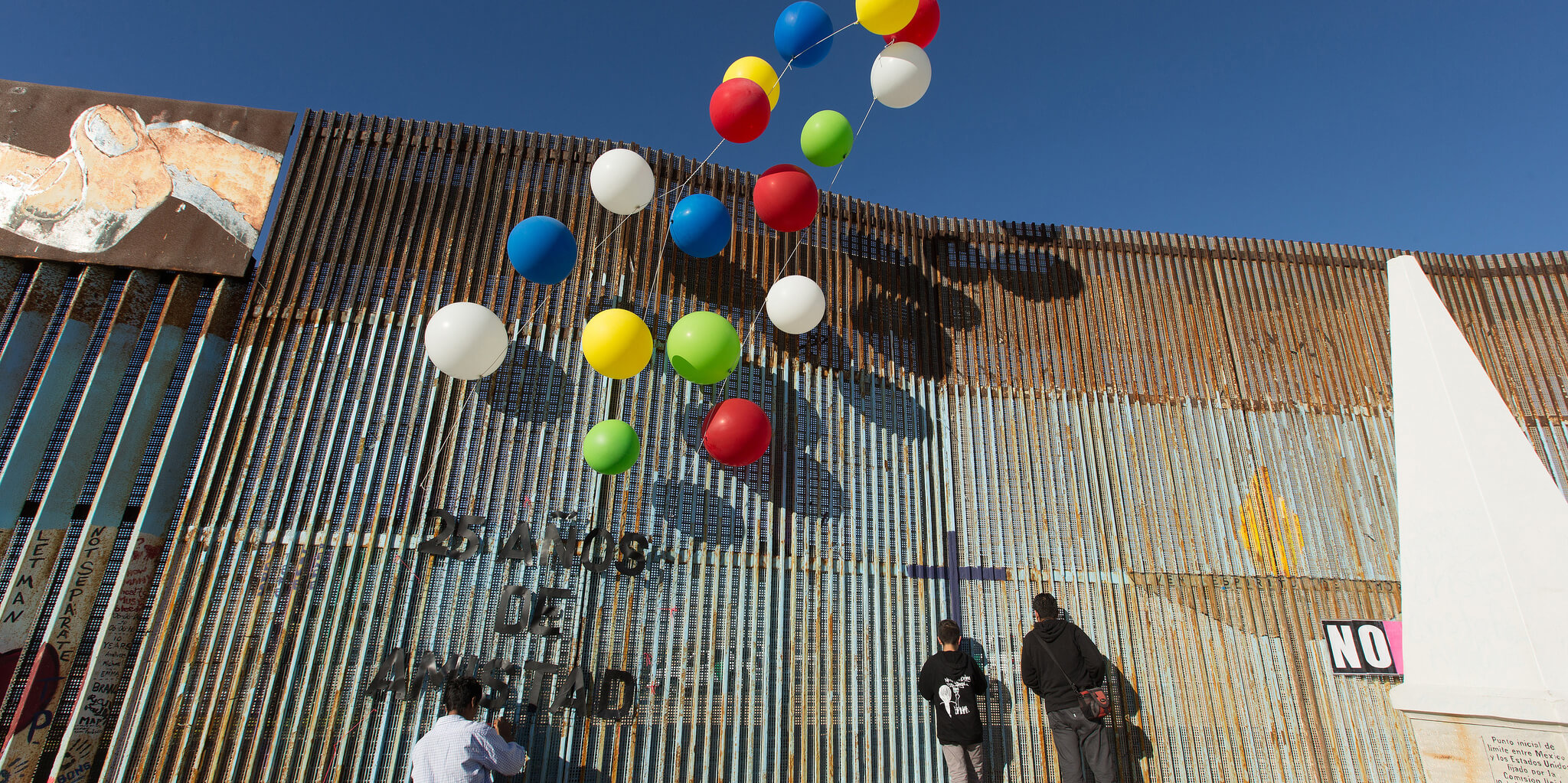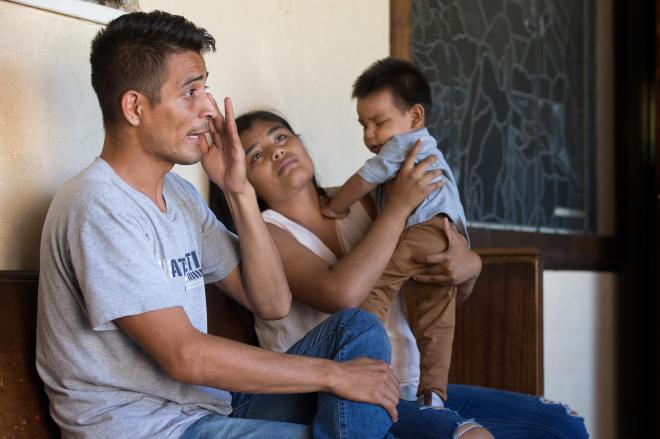
Volunteers from the Methodist Church of Mexico feed people outside a makeshift camp for migrants at the Benito Juarez sports complex in Tijuana, Mexico. PHOTO: MIKE DUBOSE, UMNS
In recent months, as director of Global Migration for the United Methodist Committee on Relief, I have seen up close the human side of migration. My experience included much sadness.
– the sadness of meeting a pregnant 16-year-old girl waiting for hours on the cold floor at an official border crossing.
– the sadness of hearing from a county coroner about the various ways people die trying to cross the desert.
– the sadness of the story of the long journeys people have taken in hopes of crossing into the U.S., some from as far away as Haiti, Cuba or even the Democratic Republic of the Congo.
– the sadness of watching heavily armed Customs and Border Patrol officers grabbing clergy protesters.
– the sadness of hearing from visitors to detention centers about the long, unspecified and unsentenced stays of those detained.
– the sadness of learning that people who are arrested for working without a work permit are allowed to work inside private detention centers for $1-4 per day.
– the sadness of discovering how CBP officers are stopping people in the middle of the bridges at official ports of entry so that potential asylum seekers can’t put their feet on American soil and make an asylum claim.

– the sadness of learning how Immigration and Customs Enforcement drop people off at bus stations, while the station manager locks the doors to keep people out.
– the sadness of a young mother living in fear of deportation because a brake light was out on her car.
– the sadness of touring a cemetery that will soon be cut off from loved ones when an additional section of the border wall is built.
And yet, there was also hope along the border.
– hope in learning about all the ways UMCOR and its partners are helping people in migration.
– hope in seeing Haitian families welcomed.
– hope in seeing backpacks and know your rights information provided to traveling asylees at a bus station, and the station manager rescheduling travelers to less complicated routes.
– hope in a call center that UMCOR helped to fund that provides a hotline service for asylum seekers looking for information.
– hope in making legal services, including assistance with removal hearings, available to asylum seekers and other immigrants along the border through the work of National Justice for Our Neighbors and UMCOR.
– hope in a new kitchen that will provide 900 meals a day now being built with UMCOR’s assistance.
– hope in a commercial washer and dryer and in additional staffing to temporary shelters made possible by UMCOR’s support.
– hope in the blankets provided to travelers along the border by UMCOR partner Church World Service.
– hope in an UMCOR matching Sanctuary grant offered to a local church.
With your help, UMCOR can bring hope to the U.S. – Mexico border and other places where migrants of all types need assistance. We are partnering with churches and other organizations around the world who are finding ways to fill the gaps in the missing rights of migrants: the right to stay, the right to safe passage, the right to welcome and the right to return. Help UMCOR bring hope to suffering migrants by giving on UMCOR Sunday, March 31, 2019.
*The Rev. Jack Amick is the director of Global Migration, General Board of Global Ministries.

